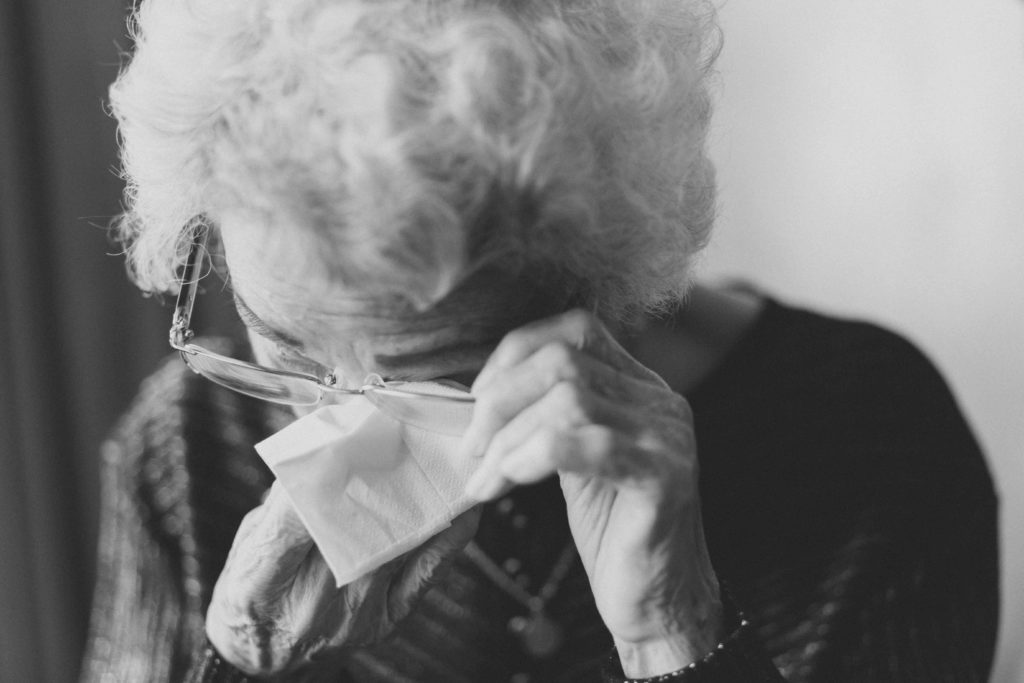
We celebrated Mother’s Day yesterday. What was it like for you?
We truly hope you enjoyed a day of love and hugs as you celebrated with your children. But if you’re a mom who has lost a child, and especially if you’ve lost a child by suicide, this is a day that reminds you of that loss. And we wish you comfort…and hope… as you reflect. We offer these thoughts for solace, along with our warmest wishes.
The death of someone you love is a terrible event. You’re left with a hole cut through your heart that never closes. Even if you expected the death, and you know that person lived a fulfilling life, you can’t predict how their absence will affect you, or how long it will be before you feel anything close to yourself again.
After the sudden and unexpected loss of a loved one by the tragedy of suicide, the traumatic experience generates utterly unbearable loss, horror, confusion, shock, and stigma. A tragedy of this magnitude initiates a search for answers that survivors experience that will likely continue the rest of their lives.
We go through our lives and we don’t remember everyone we’ve known, but we never forget a friend who took his own life. The shock and confusion of the death brands our memories. The questions we asked that couldn’t be answered and the reactions of others around us suffering the same trauma can linger forever.
Multiply the fallout by a thousand if this person was your child, your spouse, or your parent.
The BIGGEST Question
It’s natural for everyone in the inner circle — and the outer one as well — to wonder if something happened that instigated the suicide. Was there a huge disappointment? A terrible argument? Was there something he couldn’t face?
But underneath all those queries the BIG question lurks: WHY? “She had everything to live for…” “He’d finally finished school…” “ She was so beautiful and had such a beautiful family…”
Of course, these questions have no answers. Unless she left a note, or a phone message — and then it might not say why. It might be just a last minute thought for the recipient.
And here’s an important truth. When someone commits suicide there may not be a clear reason. It could have been an impulsive, spur-of-the-moment act, when something overwhelming makes it seem impossible to go on.
Their craving for relief, for release, may have overwhelmed logic and reason.

Or… if your loved one suffered from from an underlying mood disorder, she may have been having compelling thoughts about death and suicide, about despair and futility, and images of the relief suicide would bring, as well as images that helped her plan this “release.”
Her reasoning was not your reasoning. Hers may have come from circuitry in her brain that was malfunctioning. So your best intentions in helping her to see “all she has to live for” might have fallen on deaf ears. She may have been incapable of grasping your words.
When you don’t suffer with suicidal thoughts, it’s hard to imagine what that person’s thinking processes are like. It’s hard to picture how their thoughts can be suffused with distortions that defy logic, and overwhelm consideration.
You Probably Focus the Most on Your Lost Loved One, But Something Traumatic Is Also Happening To You
The news of such a tragedy strikes us without warning. We have no time to prepare, to shore up for the devastation that’s sure to follow, like a Category-5 hurricane slamming into a coastal town.
We instinctively want to tell someone, and we do… whether it’s our spouse, our parent, our best friend…even our child. And when we talk about it, we’re surprised that though there’s a small sense of comfort, the horror of the loss inflated by their absence and the permanence of it, are often far too suffocating to be eased by the sharing of a burden.
And…it probably seems surreal. Some part of you expects her to walk through the door any minute. You find yourself secretly asking, “Do we really know it was her? Could there be a mistake?” And you sift through the facts at hand, mentally trace her steps in your mind, to find any inconsistency that would reveal it isn’t really true.
But eventually, you realize this loved one really is gone. And little by little, perhaps, you begin to notice you’re able to accept it in tiny bites at a time.
Be Assured: KNOW You’re Not Alone When You Collide With the Tragedy of Suicide
Like any traumatic event, the pain of this can be isolating. You can feel like no one knows what you’re the going through, and that no one notices your pain, or understands it.

At the same time, you may find you experience “triggers” — locations, tokens, sights, sounds that remind you of your loved one’s suicide. Or it may remind you of where you were when you heard about it.
And the tragedy of suicide comes crashing down upon you again.
Bottom line, this has been one of the most traumatic events of your life. Reminders of it can create their own version of PTSD. Trembling, suddenly bursting into tears, lashing out in anger, or hiding in a dark corner, can all happen with you when these reminders trigger the memories.
Those moments may also cause you embarrassment. It can even make it hard to leave the house. You can feel so vulnerable to these reactions occurring out of nowhere. And you may fear it happening without warning. Just another fallout of this terrible loss.
When you’re touched by the tragedy of suicide it can seem that you’re often swept away with waves of grief and disbelief.
Grief is Hard on Your Relationship
You and your partner or spouse may both be experiencing these symptoms of grief. The energy you each expend to navigate this terrible time reduces the energy you have for each other. What’s more, it’s natural to withdraw to some degree as you sort out these emotions, thoughts, fears, confusion, anger… loss, sadness, maybe even guilt… and the combination of it all can cause a certain distance between you.
This is a time when you need each other the most. But, circumstances may make it terribly difficult to lean, share, or support.
Again, be assured you’re not alone. Thousands upon thousands of others are experiencing the same things you are at this same moment. And there is support, kindness, and empathy nearby if you’ll allow yourself to seek it out.
Take Healing Step by Step After You’re Touched by the Tragedy of Suicide

First, take care of yourself. There’s a wonderful book by Michael Myers, M.D. and Carla Fine, called Touched by Suicide — Hope and Healing After Loss. As you navigate your way through the days, weeks, months, and years, this book may be a great help in the process.
Next, take care of your relationship. As soon as you’re able, listen to each other. Your emotions are probably ragged. But, trusting the most important relationship in your life can help you land on more secure footing as you get through your days. When you’re able to open your heart to your spouse, listen to your spouse’s heart, too. You can begin to knit together a greater intimacy than you’ve had before… from the fiber of this tragedy.
Third, take care of your family and allow them to take care of you. This is the place where you can be nurtured, even while you nurture them. This is your safe place, and you need each other, and will continue to.
And when you’re ready, look for others who who need the support only you can give, and give it freely. When you have the opportunity to generously give support out of the well of your own walk with the tragedy of suicide and the recovering process, you may find you can triumph in that tragedy. Your most terrible wound can become your strength.
Intense Stress Can Lead to Depression, So Keep a Watchful Eye

And do keep in mind, that the loss of a loved one is an extreme stressor. The fact that the loss you mourn was caused by suicide only makes it greater.
If you’ve been reading with us for at least a little while, you know that stress can cause depression. Watch your loved ones as the weeks and months go by, for signs of depression… and encourage them to watch you, too.
Grief is normal, and sadness is part of grief. There’s no time table for determining an “appropriate length of time” to grieve the loss of your loved one by the tragedy of suicide. But if you find yourself stuck in a spot, and not moving forward, at some point you may want to consider treatment.
If sadness gives way to despair and despondency, seek help.
Our hearts are with you, and hope for your joy and resilience to return soon. Remember, while the hole left by your loved one will not really close, over time you’ll learn to live around it, to grieve when it’s time, and to rejoice in life when it’s not.
And if you already suffer from a mood or anxiety disorder that’s not getting better, and have been plunged into grief and loss, it may be important for you to seek treatment now. Call us and let us help you restore the resilience that can help you navigate the sadness, and in your own time, recover and move forward.
To the rejuvenation of your best self,


Lori Calabrese, M.D.
We can all help prevent suicide. The National Suicide Prevention Lifeline provides 24/7, free and confidential support for people in distress, as well as prevention and crisis resources for you or your loved ones.
The National Suicide Prevention Lifeline 1-800-273-TALK (8255)
The Veterans Crisis Line and Military Crisis Line 1-800-273-8255 Press 1
Crisis Text Line: 741-741 Free text hotline 24/7